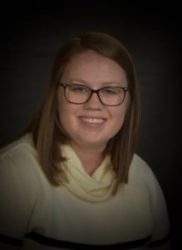When our Religious Education Coordinator Cami Thomas asked me to help with teaching Black People Matter this winter, I was thrilled to step-up. As the Social Justice Intern, talking about race is a key component of my job description. Unfortunately, my job title and description did little to ameliorate the intense feeling of anxiety that fell over me the night before my first day of teaching.
I had some experience talking about race before, as I facilitated numerous discussions about race while working at the Service Learning Program at Marquette. But the key difference there was that I was talking to college students and young adults. When you talk with college students and adults about race, you can easily plan for the conversation and know what to expect. You usually have the “reverse racism is real” person, the “but I’ve worked hard too!” person, and the “I don’t see color” person in the room, and as a facilitator, you can plan how to respond. The issue is, none of this knowledge prepared me for talking with children about race. That’s just a different discussion. My recipe for discussions about race with adults, featuring a little bit of enlightenment, a whole lot of anti-racism work, and a dash of personal reflection, would not be adequate for first and second graders.
I did not realize the recipe needed to be altered until I walked into the classroom on that Sunday in January, sat down in a chair, and saw five young faces staring eagerly at me. It was in that moment that I realized that when talking to children about race, it is not so much about what you say (while that is important), but just the fact that you are saying it. Children have a curiosity and openness unlike adults, which means that the conversation needs to be more reflective, introspective, and open, rather than focusing on deeply analyzing the systemic racism present in our society (kids can learn about that at a later date). So after two weeks of talking with first and second graders, I have a new recipe, featuring openness, dedication, and most of all, a willingness to listen and learn.
In Solidarity,
Claire
The First Unitarian Society of Milwaukee is a progressive church for spiritual community, social justice, and intellectual freedom. Visit us for Sunday services, forums, religious education for children & youth, and other programs and social activities. Visitors to First Church are always welcome! Join us for coffee and conversation in the Common Room following each service.
